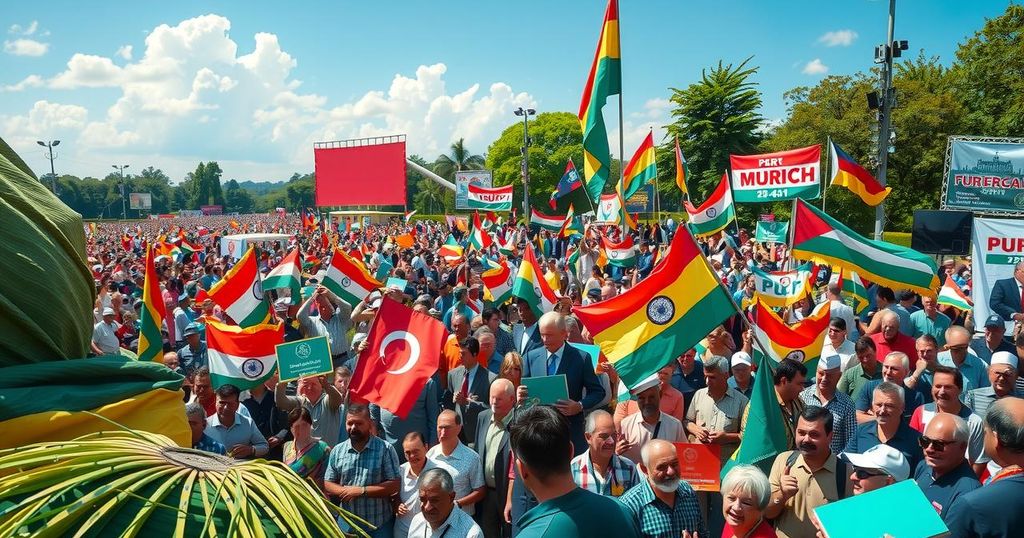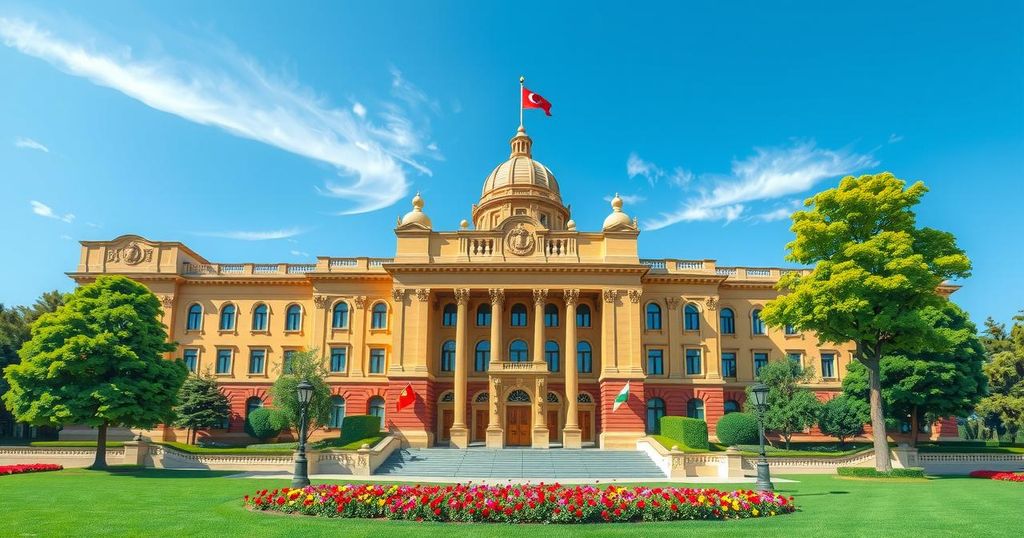Syrian Civil War Reignited by Rebel Gains in Aleppo
The rebel takeover of Aleppo has escalated the Syrian civil war, prompting Russian airstrikes and renewed conflict dynamics. The offensive, spearheaded by Hayat Tahrir al-Sham, has prompted government promises of retaliation and raised alarms about potential Turkish involvement. The U.N. calls for negotiations have largely gone unheeded, pointing to a complex situation with significant geopolitical repercussions.
The recent seizure of Aleppo by Islamist rebels has rekindled the Syrian civil war, prompting a series of air raids by the Syrian military, aided by Russia, targeting rebel-controlled areas. The rebels’ successful takeover shifted control of the city for the first time since 2016, igniting dormant frontlines and raising concerns about broader regional implications, potentially involving Turkey and Russia. This significant escalation underscores an already complex conflict, with over 500,000 lives lost since its inception in 2011 and millions displaced as refugees.
The rebel offensive commenced on November 26, marking the first major military engagement in Aleppo since the government regained control in 2016 with support from Russia and Iran. With territories in the surrounding Hama province also falling to the rebels, the Syrian government has vowed to retaliate. Russia has intensified airstrikes in an effort to support Assad’s troops, intensifying the ongoing strife in the region.
The primary group leading the attack is Hayat Tahrir al-Sham (HTS), formerly affiliated with al-Qaeda but severed ties in 2016. HTS has maintained dominance in the Idlib region, while a separate coalition backed by Turkey is launching its own offensive in northern Aleppo. Both groups face opposition from nations like the United States and Russia, which label HTS as a terrorist organization.
The renewed conflict can be attributed to the shifting regional dynamics, with Iran and Hezbollah’s focus diverted following recent hostilities with Israel. U.S. National Security Advisor Jake Sullivan noted the opportunity for rebels to act amid the distraction of their adversaries. While a ceasefire established in 2020 did stabilize the situation temporarily, Turkish officials express concerns over escalating violence from the Syrian regime against rebels.
Despite the U.N. Security Council’s 2015 resolution aimed at establishing peace through a new constitution and elections, real progress has faltered. Geir Pedersen, the U.N. Syria envoy, reiterated the urgent need for substantive negotiations, emphasizing international failure to facilitate a political resolution even as the conflict flares anew.
The Syrian civil war began in 2011 as protests against President Bashar al-Assad escalated into a brutal conflict involving various factions and foreign powers. The introduction of Russian military support for Assad in 2015 significantly altered the dynamics on the ground. Recent escalations in fighting, particularly in Aleppo, signal a deterioration of the situation after years of relative stasis, highlighting the overarching geopolitical struggles involving multiple nations in the region.
In summary, the capture of Aleppo by rebel forces has intensified the Syrian civil war, drawing international attention and concern. The conflict’s complex web of alliances and enmities, particularly involving Turkey, Russia, and Iran, complicates efforts toward a peaceful resolution. As foreign influences shift and local powers vie for control, the potential for further violence and instability in the region remains high.
Original Source: www.france24.com




Post Comment